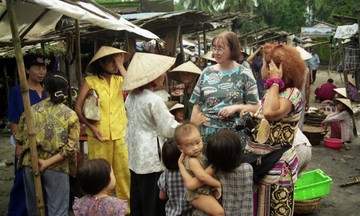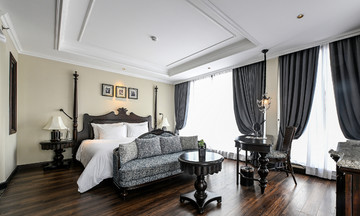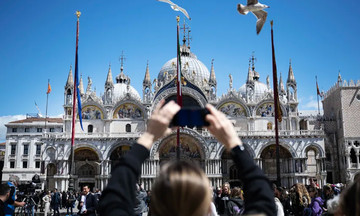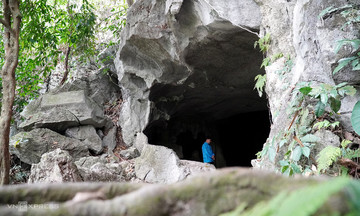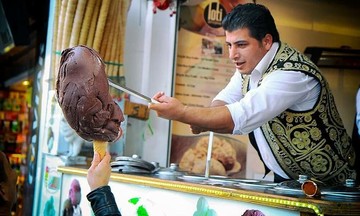The Luk Thep doll phenomenon in Thailand has garnered attention for its spiritual aspects. Luk Thep, or "Child Angels," are lifelike plastic dolls believed to contain spirits that bring good luck and prosperity. Owners care for them like real children, feeding, clothing, and cuddling them.
Photojournalist Amanda Mustard of Time magazine recounted seeing a woman in a Bangkok parking lot cradling what she initially thought was a baby, but turned out to be a Luk Thep doll. A Luk Thep-related story that grabbed global headlines in 1/2016 involved Thai Smile Airways allowing passengers to purchase plane tickets and meals for the dolls, even instructing flight attendants to treat them like children.
 |
A Luk Thep doll. Photo: Time |
A Luk Thep doll. Photo: Time
The origins of Luk Thep are debated. Some believe they're a modern take on Kuman Thong, statues made from the remains of stillborn fetuses, thought to contain spirits that bring good fortune if treated well.
Another theory links Luk Thep to Thailand's low birth rate, with middle-aged women using the dolls as emotional substitutes. The trend may also stem from the 2016 economic downturn, prompting people to seek spiritual solace.
Most agree that Luk Thep reflects the interplay of Buddhism, Hinduism, animism, and the tradition of object worship in Thailand. Buddhist monks and fortune tellers perform rituals to imbue the dolls with "lucky" spirits, transforming them into objects of spiritual power. Mustard suggests Luk Thep are part of the custom of wearing amulets for good luck.
In 2015, Thai radio personality DJ Bookko began bringing her Luk Thep doll, Wan Sai, to public events and posting about it on social media. Thai celebrities followed suit, taking their dolls to upscale restaurants, nail salons, and even requesting separate seats for them on airplanes.
Mama Ning, a self-proclaimed "mother of Luk Thep" and Hindu ritual expert, is considered the trend's originator around 2011. Besides selling the dolls, she customizes them and performs rituals to match owners with suitable dolls. Mama Ning leads a group of about 10 women, called "disciples," who follow her guidance in caring for and venerating Luk Thep.
 |
Inside Mama Ning's house. Photo: The World |
Inside Mama Ning's house. Photo: The World
Thais care for their Luk Thep in various ways. Some keep them in shops or businesses for good luck, not bringing them home. Others treat them like real children, feeding, dressing, hiring babysitters, and even organizing playdates.
Some Thai restaurants even offer special Luk Thep menus with child-sized portions. Mustard attended Mama Ning's wai khru ceremony in 3/2016 and met a family who adopted a doll named Natalie. The family, consisting of a couple and their 8-9-year-old son, explained they wanted a daughter but couldn't have one, so Natalie filled that void. For some, Luk Thep provide emotional support, strengthen family bonds, or help overcome issues like alcoholism.
However, media attention also sparked controversy. Some Thais believe Luk Thep owners have psychological issues. Meanwhile, Thai police warned that criminals might use the dolls to smuggle drugs. Consequently, sightings of Luk Thep in everyday life have become less frequent. When owners no longer want to care for their dolls, they often take them to temples instead of discarding them, believing they contain spirits and can't be disposed of casually.
Hoai Anh (Time, Lonely Planet)





